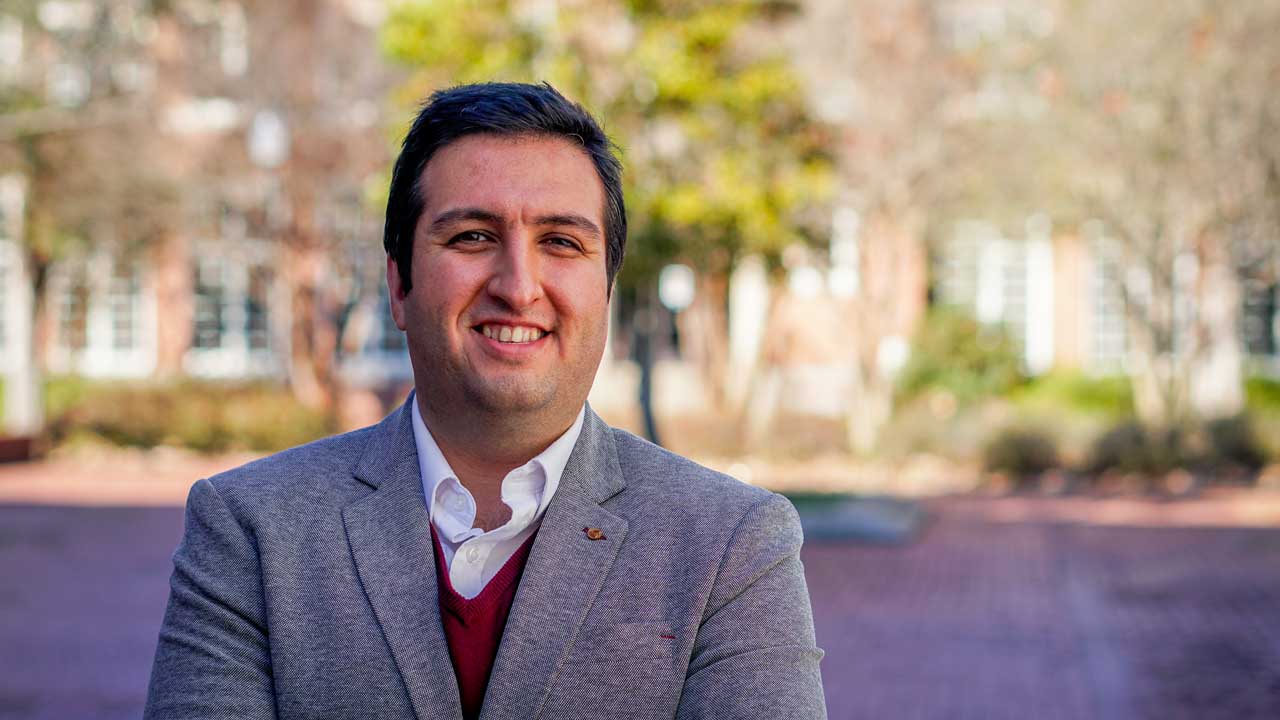Chemical engineering doctoral candidate named AHA Predoctoral Fellow
Published: Jan 20, 2022 2:12 PM
By Cassie Montgomery
Mohammadjafar Hashemi is an expert when it comes to matters of the heart – the diabetic heart, that is. The Auburn chemical engineering doctoral candidate’s research is helping to further medicine’s understanding of the impact of diabetes on human heart function under the advisement of Elizabeth Lipke, the Mary and John H. Sanders Professor of chemical engineering, and Raj Amin, associate professor in the Auburn University Harrison School of Pharmacy. Hashemi was recently awarded a two-year predoctoral fellowship from the American Heart Association to continue his research into cardiovascular disease.
“I have embarked on a career in tissue engineering and I have been trying to bring the perspective of my engineering background to the medical field for developing a model to improve our knowledge of heart disease progression,” Hashemi said. “This fellowship provides this opportunity for me to expand my research in Dr. Lipke’s research group to investigate the impact of diabetes on human heart function in collaboration with Dr. Amin. This may eventually lead to a better understanding of how we can prevent the progression of diabetic cardiomyopathy (DCMP).”
Heart disease is the leading cause of death in the United States with more than 800,000 deaths in 2017 alone. The occurrence of heart failure is more than two times higher in diabetic individuals than non-diabetic, and more than 29 million people in America have diabetes. Furthermore, heart failure is the leading cause of morbidity among diabetic patients.
A general definition for DCMP is structural and functional abnormalities of the myocardium (heart wall) in diabetic patients without coronary artery disease or hypertension. There is no specific treatment for the diabetic heart aside from a whole-heart transplant. Current knowledge about the diabetic heart was discovered via clinical research, in vivo studies using animal models and 2D cardiomyocyte monolayer models.
“These models are far away from the actual condition of the human diabetic heart,” Hashemi said. “My proposed research works to fill this gap by providing a 3D structure, more complexity by coculturing different types of cells involved in the disease progression and using human cells instead of animal cells.
“The proposed model helps us to understand better how diabetic cardiomyopathy happens. My goal in developing this model is to use it for testing different medicines to prevent the progression of DCMP disease,” he added.
Hashemi was inspired to pursue a doctorate in tissue engineering at Auburn due to the interdisciplinary nature of the field and its inherent potential to make a difference in the lives of others.
“Auburn’s chemical engineering department provides interdisciplinary research, which allows me to pursue my interests in more depth. The field of tissue engineering is interdisciplinary and uses a combination of chemistry, biology, materials and engineering,” Hashemi said. “I have always been driven by the desire to impact others’ lives and help patients. Tissue engineering fits my interest and allows me to use my engineering background to produce human heart organoids, a suitable tool for discovering new medicines and therapies.”
Media Contact: , cmontgomery@auburn.edu, 334.844.3668
Mohammadjafar Hashemi

